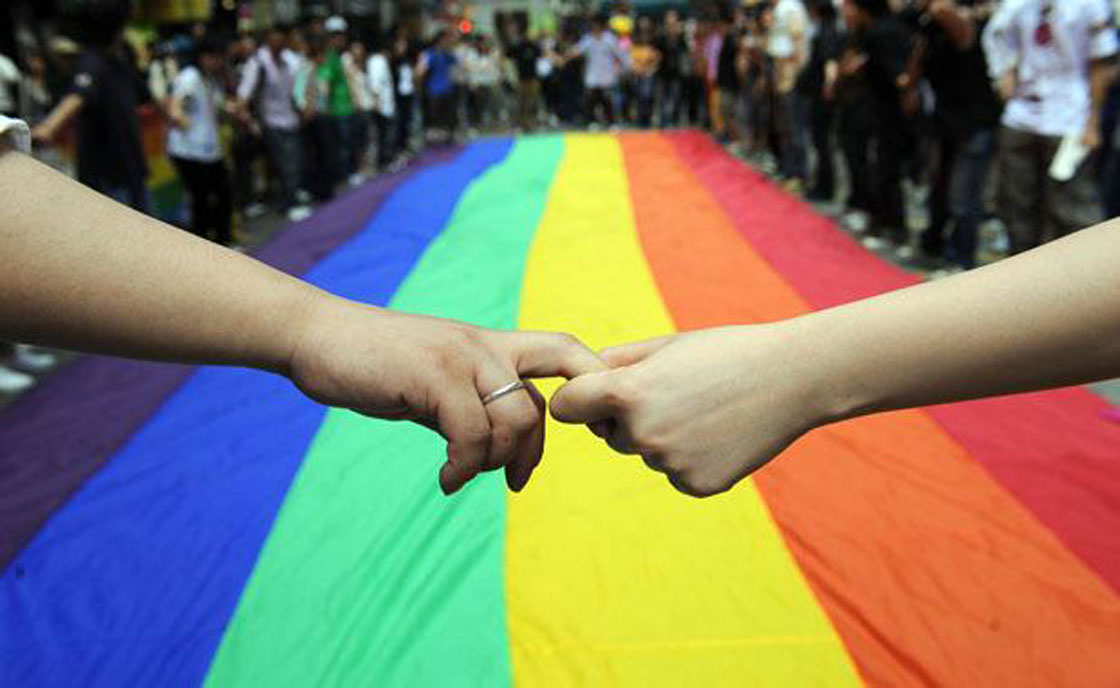TORONTO – Coming out to family and friends may be one of the hardest experiences in a young person’s life, but a University of Montreal researcher suggests that doing so offers health benefits.

Montreal researchers say that gay, lesbian and bisexual youth who come out of the closet face lower levels of stress, anxiety and burnout, and as a result, have healthier lives.
“At the end of the dark tunnel, our results suggest that there are health benefits to coming out,” Robert-Paul Juster, who led the research, told Global News.
Those who came out of the closet had lower levels of cortisol, a stress hormone secreted in the body. A buildup of the hormone leads to “wear and tear,” Juster explained. About 20 biological markers were considered in his research.
The landmark study, published Tuesday in the journal Psychosomatic Medicine, examines how disclosing one’s sexual orientation affects health outcomes.
“This is the first study of its kind and much more work needs to be done,” Juster said.
“The important point here is that having support around you makes a world of difference.”
Stress, anxiety, depression considered in study’s subjects
Eighty-seven men and women around 25 years old participated in Juster’s study – about half were heterosexual men and women while the other half were lesbian, gay or bisexual.
Thirty-one people had disclosed their sexuality while 14 hadn’t yet.
Psychological tests, and samples of blood, saliva and urine were taken over the course of several visits to measure cortisol.
When long-lasting stress builds up, cortisol takes a toll on the body, exerting the brain or the immune system, for example. This strain is called “allostatic load.”
“Allostatic load is like a domino effect whereby things like cholesterol, blood pressure, insulin and inflammation topple down leading to stress-related disease,” Juster said.
Results showed that those who came out had lower levels of depression, anxiety and burnout, along with lower levels of cortisol. They had lower body mass and less inflammation.
Meanwhile, participants who had not disclosed had more of these symptoms. “So they were clearly more stressed,” Juster said.
Also noteworthy was that those who were out even had lower levels of allostatic load and symptoms of depression than heterosexual men.
Coming out to loved ones is a ‘turning point’
Coming out to family and friends can be a “freeing” experience, Ryan Dyck, who is Egale Canada’s director of policy and public education. Egale is a national LGBT human rights organization.
“For a lot of people, it can be a huge relief and massive turning point in their lives,” he told Global News.
“There is absolutely something very incredible in that moment of being honest with yourself with who you are and being honest with the people who are important to you. It’s freeing for many people and leads to more authentic and meaningful relationships.”
“But that’s not the case for everybody. For some people, coming out is not a positive experience.”
He says that the moments leading up to coming out can be the most daunting. Dyck was 19 when he told his family of his sexuality.
“For me, the process of coming out was hugely stressful. It was undoubtedly one of the most stressful times of my life,” he said.
He didn’t know how people would react – some who he thought wouldn’t be supportive were understanding, while others weren’t. But overall, there was “a lot” of negative reaction.
“That period of coming out was not a happy time for me in a lot of ways. It really was the years following that – the process of coming out and then waiting for and working with people to come to terms with it – that was better.”
While he understands the study’s findings, he says he questions who was involved – particularly the subjects’ religion, socioeconomic status and the amount of time that had passed since they come out.
While some people may be relieved when they come out, others may not want to come out because they’re living at home, or because of their family’s faith, Dyck says.
“It is dangerous to lump the coming out process into one stereotypical experience.”
He notes that homophobia and transphobia still exists across Canada. Statistics even show that 60 per cent of LGBT youth don’t feel safe at school.
“It’s important not to diminish that,” he said.
Sparking a public health discussion
Juster says his findings should trigger a public health debate – societies should promote tolerance, and dispel stigma for minorities.
“I think the overall message is that society has a responsibility to facilitate the disclosure process,” he says.
“Coming out is a very personal choice that involves a transition spanning years. Self-accepting one’s sexual orientation and coming out to others are considered the most significant stressors in the lives of sexual minorities, so we need to think about how stigma and homophobia only make this sensitive process even harder.”
Juster’s next steps include studying resilience, or how people who encounter trauma are able to cope and grow stronger against stressful situations in the future.




Comments